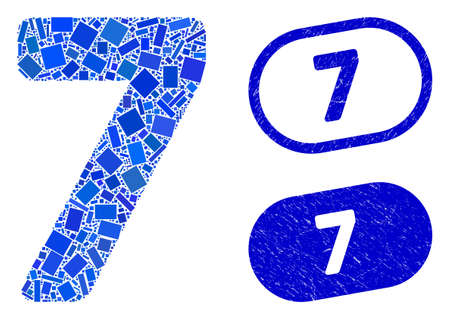Origins of Reiki in Japan
Reiki, a term now recognised globally for its gentle healing approach, traces its origins to early 20th century Japan. Its story begins against the backdrop of a nation balancing tradition and modernity, where ancient spiritual practices were being rediscovered and reinterpreted. At the heart of Reiki’s emergence lies the figure of Mikao Usui, a thoughtful and introspective man whose life journey became central to the development of this spiritual healing art.
Usui was born in 1865 in the Gifu Prefecture, at a time when Japan was opening up to Western influences yet still deeply rooted in its own cultural heritage. From a young age, Usui exhibited a keen interest in both spiritual matters and practical knowledge. He pursued studies across various disciplines, delving into Buddhist teachings as well as elements of Shintoism and even Christianity, reflecting the eclectic intellectual atmosphere of Meiji-era Japan.
It was during a period of personal crisis and contemplation that Usui reportedly underwent a profound spiritual experience while meditating on Mount Kurama near Kyoto. This pivotal event is said to have bestowed upon him a new understanding of healing energy — what would come to be known as Reiki. Inspired by his insights, Usui developed a system for channelling this universal life force through the hands, laying the foundations for what would become the Usui Reiki Ryoho method.
The humble beginnings of Reiki were marked by Usui’s dedication to sharing his discovery with others. He opened a clinic in Tokyo in 1922, where he taught students and treated those seeking physical or emotional relief. His teachings emphasised not only hands-on healing but also the importance of ethical living and personal growth, encapsulated in what are now called the Five Reiki Principles.
Thus, from its roots in Japan’s spiritual renaissance and through the vision of Mikao Usui, Reiki began its journey. What started as one man’s quest for meaning and healing soon blossomed into a practice that would traverse continents and cultures, touching countless lives with its message of compassion and balance.
2. Philosophical and Spiritual Underpinnings
Reiki, at its core, is a healing modality deeply rooted in a unique blend of Eastern philosophies and spiritual traditions. Its foundational beliefs are shaped by an intricate tapestry of concepts drawn from Japanese culture, Buddhism, Shintoism, and broader spiritual thought. The practice of Reiki does not align itself strictly with any one religion; rather, it embraces universal principles that transcend cultural and religious boundaries, making it both accessible and appealing to a wide spectrum of practitioners worldwide, including those in the United Kingdom.
Key Spiritual Concepts in Reiki
The following table outlines the essential philosophical and spiritual ideas that underpin Reiki:
| Concept | Description |
|---|---|
| Ki (氣) | Derived from the Japanese word for “life force energy,” Ki is central to Reiki philosophy. It is believed that Ki flows through all living beings and that its harmonious movement supports health and well-being. |
| Universal Connection | Reiki teaches that all life is interconnected through this universal energy, fostering a sense of unity and compassion towards oneself and others. |
| Mindfulness & Intention | The practice emphasises being present in the moment and harnessing positive intention as a catalyst for healing, reflecting both Buddhist mindfulness practices and traditional Japanese values. |
Cultural Influences on Reiki’s Foundations
The development of Reiki was significantly influenced by several cultural elements prevalent in early 20th-century Japan. The integration of Buddhist meditative practices, Shinto reverence for nature and ancestors, and the Japanese ethos of harmony (wa) created fertile ground for Mikao Usui’s synthesis of these ideas into what became known as Reiki. When introduced to the West—particularly to the UK—Reiki was further shaped by local attitudes toward holistic health, openness to alternative therapies, and a respect for personal spiritual exploration.
Comparing Japanese Roots and Western Adaptations
| Element | Japanese Tradition | Western/UK Practice |
|---|---|---|
| Spirituality | Tied closely to Buddhism/Shintoism; rituals and symbols are emphasised. | Focus on universal spirituality; less emphasis on ritual, more on personal growth. |
| Healing Approach | Holistic, with attention to spiritual lineage and discipline. | Adapted for broader accessibility; integrates with other holistic therapies. |
The Role of Belief in Reiki Healing
A fundamental tenet within Reiki practice is the power of belief—not just in a metaphysical sense but also in terms of psychological well-being. Practitioners are encouraged to cultivate trust in the process, foster gratitude, and embrace daily affirmations such as the Five Reiki Principles. These guiding precepts serve not only as tools for healing but also as a moral compass, encouraging kindness, honesty, diligence, gratitude, and calmness. In summary, the philosophical and spiritual underpinnings of Reiki form a rich foundation upon which this healing art stands. By understanding these roots—whether as a practitioner or recipient—one gains deeper insight into how Reiki bridges ancient wisdom with modern holistic well-being within British society.

3. The Development and Spread of Reiki
Following its inception in early twentieth-century Japan, Reiki underwent a period of significant evolution, shaped by the experiences and dedication of its earliest practitioners. After Mikao Usui established the system, his teachings were passed down to a close group of students, among whom Chujiro Hayashi played a pivotal role. Hayashi refined the practice, formalising hand positions and treatment protocols, which provided a more structured approach for future generations.
The spread of Reiki beyond Japan can largely be attributed to Hawayo Takata, a Japanese-American woman who learned Reiki from Hayashi in the 1930s. Returning to Hawaii, she began teaching Reiki to Western students, carefully adapting the practice to suit new cultural contexts while preserving its core principles. Through her efforts and those of her students, Reiki gradually found its way to North America and Europe during the latter half of the twentieth century.
The Introduction of Reiki to the United Kingdom
The United Kingdom’s embrace of Reiki is a particularly noteworthy chapter in this story. During the 1980s and 1990s, Reiki practitioners began establishing networks and workshops across England, Scotland, Wales, and Northern Ireland. Early British practitioners often faced scepticism, yet their commitment to authentic training and ethical practice helped establish credibility within both holistic health circles and broader society.
Building Foundations in British Culture
Reiki’s integration into British culture was marked by an emphasis on maintaining lineage integrity and fostering inclusive communities. Practitioners respected traditional Japanese roots while also making adaptations that resonated with local sensibilities—such as offering sessions in community centres and collaborating with existing complementary therapies. As a result, Reiki became increasingly accepted as part of the UK’s growing interest in holistic wellbeing.
Contemporary Influence
Today, Reiki continues to flourish across the United Kingdom. It is practised in private clinics, wellness centres, and even some NHS settings as a complementary therapy. The journey from its humble beginnings in Japan to its respected place within British society underscores not only the adaptability of Reiki but also its enduring appeal as a gentle method for promoting balance and healing.
4. Core Principles and Practices
At the very heart of Reiki lies a set of guiding principles and practices that serve as the bedrock for every practitioner, whether novice or master. These core tenets are more than mere guidelines; they form an ethical compass and spiritual foundation that shapes the daily life and healing work of all who walk the Reiki path in Britain and beyond.
The Five Reiki Precepts
Mikao Usui, the founder of Reiki, articulated five precepts (also known as “Gokai” in Japanese) to encapsulate the essence of living mindfully and compassionately. These are not rigid rules but gentle reminders to cultivate a harmonious spirit, echoing values cherished in both Eastern wisdom and British traditions of personal integrity.
| Reiki Precept | Interpretation |
|---|---|
| Just for today, do not be angry | Encourages emotional balance and patience, aligning with the British value of keeping a ‘stiff upper lip’ amidst adversity. |
| Just for today, do not worry | Promotes trust in the unfolding of life—a gentle nudge towards mindfulness in everyday moments. |
| Just for today, be grateful | Nurtures appreciation for both small blessings and great fortunes, reflecting the time-honoured British tradition of gratitude. |
| Just for today, work diligently | Inspires dedication and responsibility, echoing the strong work ethic found throughout UK society. |
| Just for today, be kind to others | Upholds compassion and empathy, values deeply woven into both Reiki practice and British communal life. |
Fundamental Practices and Rituals
The practical side of Reiki is shaped by a series of rituals that create a sacred space for healing. Central to these is the gentle laying on of hands—a universal gesture that transcends cultures—and the silent invocation of intention. Practitioners often begin each session with a moment of meditation or silent reflection, anchoring themselves in the present. This ritualistic opening harmonises well with longstanding British customs such as taking a quiet moment before meals or gatherings.
Key Elements of Reiki Practice
- Hand Positions: The practitioner places their hands lightly on or just above specific points on the recipient’s body, believed to correspond to energy centres (or chakras).
- Attunement: During training, practitioners undergo an ‘attunement’ process conducted by a Reiki Master. This ritual is said to open one’s energy channels, enabling them to connect more fully with universal life force energy—a concept gently resonant with Britain’s rich spiritual heritage.
- Meditation & Mindfulness: Sessions often begin with breathing exercises or meditative focus, helping both practitioner and recipient to ground themselves—much like the British custom of pausing for tea as a mindful break in daily routine.
- Cleansing Rituals: Cleansing oneself after sessions through symbolic gestures or visualisation helps maintain energetic clarity. Such rituals subtly mirror traditional British habits like washing hands before meals or after tasks.
A Living Tradition in Modern Britain
The core principles and practices of Reiki continue to resonate with those seeking balance in contemporary British life. Whether practised in a tranquil Cotswold cottage or within the bustling heart of London, Reiki offers timeless guidance—bridging ancient wisdom with modern sensibilities, inviting practitioners and recipients alike to live each day with presence, gratitude, and gentle kindness.
5. Reiki in British Culture
Reiki, though rooted in early 20th-century Japan, has found a distinctive place within British culture since its introduction to the United Kingdom in the late 20th century. British communities, known for their openness to alternative therapies and holistic approaches, have gradually woven Reiki into the broader tapestry of complementary health practices. This integration is visible both in urban centres such as London, Manchester, and Edinburgh, and in rural communities where wellness traditions are cherished.
The Journey of Adoption
In the UK, the initial adoption of Reiki was often spearheaded by pioneers who studied the practice abroad or under Japanese masters before returning home. Early practitioners faced scepticism from mainstream medical professionals and segments of the public; however, the growing movement towards holistic well-being during the 1990s and early 2000s provided fertile ground for Reiki to take root. Training workshops and local Reiki circles became increasingly common, contributing to a rising awareness of energy healing techniques.
Adaptation and Integration
British practitioners have adapted traditional Reiki teachings to reflect local values and expectations. For instance, while honouring Mikao Usui’s original methods, many UK-based Reiki teachers emphasise inclusivity, community service, and ethical practice, aligning with the country’s long-standing charitable ethos. Some practitioners blend Reiki with other modalities such as mindfulness meditation or yoga, creating unique integrative therapies tailored to individual client needs. This adaptability has allowed Reiki to flourish alongside other complementary therapies commonly embraced in Britain.
Reiki’s Standing in Today’s Holistic Health Landscape
Today, Reiki holds a respected position within the UK’s vibrant holistic health scene. It is offered not only in private clinics but also within NHS settings, hospices, and charity organisations—often as part of broader patient care programmes aimed at enhancing relaxation and emotional well-being. The UK Reiki Federation and similar bodies help maintain professional standards and provide support for practitioners. Public interest continues to grow, fuelled by an increased focus on mental health and self-care. In this landscape, Reiki stands as a bridge between tradition and modernity—a gentle yet profound practice valued for its potential to nurture mind, body, and spirit across British society.
6. Contemporary Perspectives and Future Outlook
As Reiki continues its journey from early 20th-century Japan to the present day, it has found a receptive home within British society. Modern Reiki practice in the UK reflects both respect for traditional principles and a thoughtful embrace of contemporary values. Today, Reiki is recognised not only as an alternative healing method but also as a complementary therapy, increasingly integrated into wellness centres, private clinics, and even some NHS initiatives.
British practitioners have skilfully adapted Reiki to suit local needs and sensibilities. There is a particular emphasis on ethical practice, transparency, and inclusivity, aligning with broader societal expectations in Britain. Workshops and training programmes often include modules on professional conduct and safeguarding, ensuring that both clients and practitioners feel secure. Additionally, the British tendency towards measured scepticism has encouraged open dialogue about evidence-based practice and the place of holistic therapies alongside conventional medicine.
Reiki circles and community gatherings have flourished across the UK’s towns and cities, offering spaces for reflection, mutual support, and the sharing of experiences. These groups frequently blend mindfulness traditions with Reiki, creating a distinctly British approach that values quietude, personal growth, and community wellbeing.
Looking forward, Reiki in Britain is poised for further development. As interest in mental health and holistic wellness grows, there is potential for greater collaboration between Reiki practitioners and healthcare professionals. The future may see more robust research into Reiki’s effects, helping to clarify its benefits within clinical settings. Furthermore, digital technology is opening new avenues for distance healing sessions, online workshops, and practitioner networking.
In summary, contemporary British Reiki stands at a crossroads of tradition and innovation. Its foundations remain rooted in the gentle art of energy healing, yet its branches reach towards an inclusive future—one where ancient wisdom meets modern understanding for the benefit of all who seek balance and harmony.

